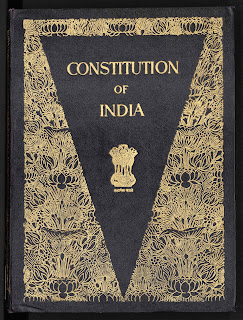Fundamental Rights of India
Rights and Fundamental Rights of the individual
Status of England
 |
| मूल अधिकार |
In England and elsewhere there is a judiciary guarding the rights of the individual. But there is a fundamental difference. In England, the court has full power to protect the person against the tyranny of the executive, but the courts become powerless when the legislature invades the rights of the person. In short, there is no fundamental right binding against the Legislature of England. The Parliament of England is theoretically omnipotent. There is no method that he cannot change. As has been said before, the person has the right but they are based on the common law of the country which the Parliament can change like other laws. Therefore, there is no such authority which Parliament can change like other laws. Therefore there is no such right which can be called a fundamental right in the real sense. Another important consequence of the supremacy of Parliament is that the Courts of England do not have the power of judicial review of legislation. No law can be declared unconstitutional on the ground that it violates any fundamental right or natural right.



